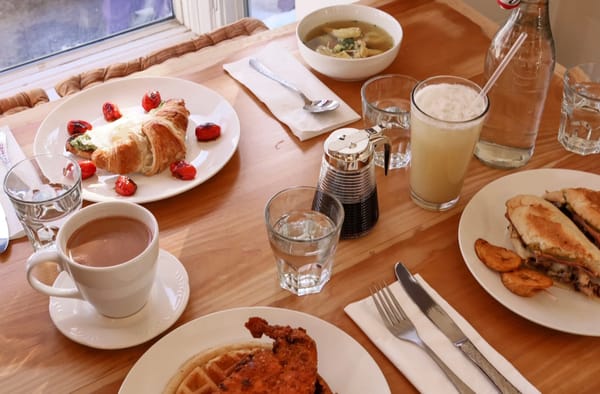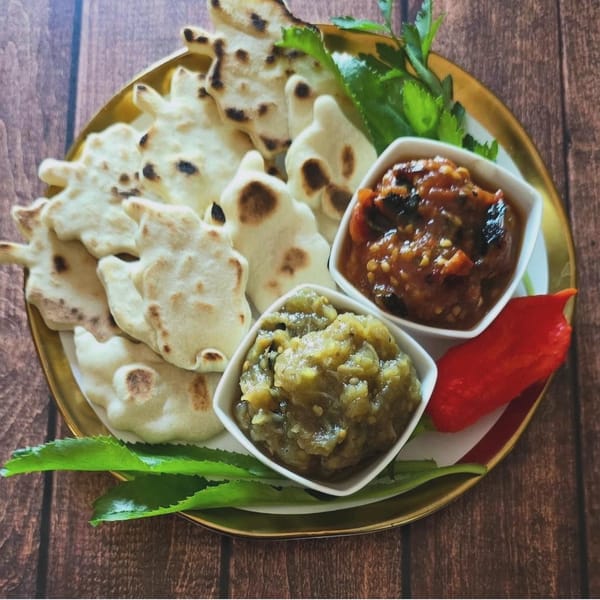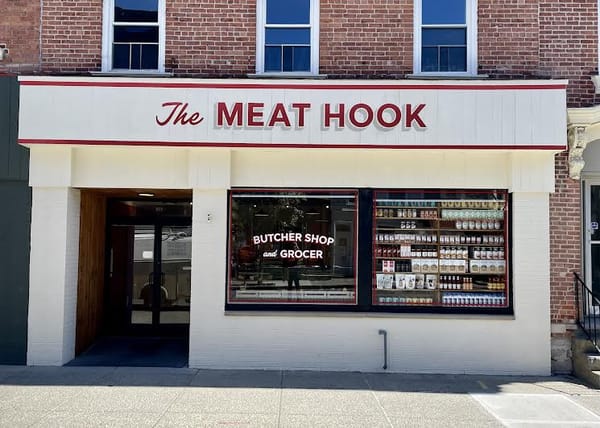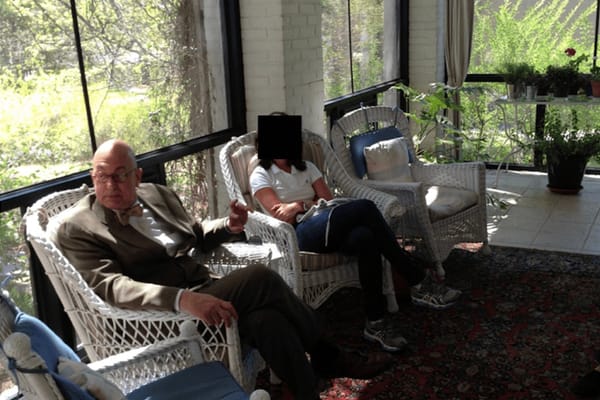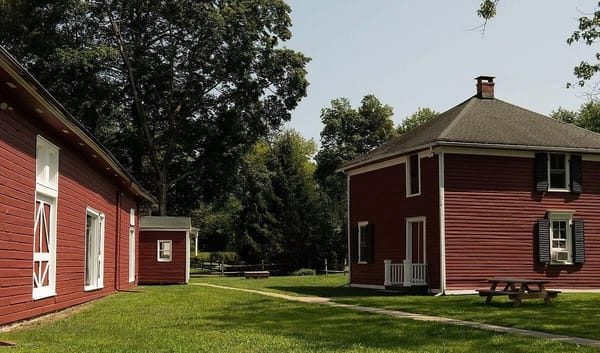
Peter Davies and Mark Scherzer are the owners of Turkana Farms in Germantown, NY. This week Peter writes: It's a new year and our sheep are on the qui vive, producing a baby lamb every few days, six so far. And all of them are black, their wool tightly crimped, and they sport long floppy ears. Just the classic Karakul look we want. Last year an errant, light-colored ram (he was supposed to have been castrated, but apparently the job was not thorough enough) gave us many tiny ginger and ivory lambs with virtually nonexistent ears. Not the look we want. Suleyman, our current coal black ram, named after Sultan Suleyman, the Magnificent, has been very industrious, indeed magnificent, and his genes seem to be just what the doctor ordered. Obviously we are beginning to think in terms of selective breeding. A few weeks ago, I promised a further explanation as to how we arrived at our concept of farming, so here it is. Another important component, marketing: Unlike the vague, fate-determined process by which we found ourselves farming, and the gradual, evolutionary process by which we arrived at our focus for the farm, it was by a much more conscious process that we found a way to market our products. We had heard, from the beginning, that attempting to wholesale farm products was not the route to follow if we expected to break even or make something resembling a profit. It was obvious that we had to find a way of somehow retailing our products. Lasher Avenue, we determined, was too quiet a street to try a front yard farm stand, and, given a certain hostility in the air, we were not sure the payments that might be left in the farm stand cash box would get to us anyway.

A number of options presented themselves: selling at a farmer's market or establishing a CSA were two. So we did for a season attempt to sell through a stand at the Saturday morning Hudson Farmer's market. It was an experiment not to be repeated for several reasons: first, the Hudson Farmer's Market at that time (hopefully it is better now) was poorly attended, and most of those who did attend had little appreciation for organic products or heirloom varieties of vegetables—at least, not enough to pay the higher price. And given that we were both on the farm only on weekends and there were, therefore, lots of two person jobs that needed to be done at that time, spending most of Saturday standing idly in a market stall did not make sense. Attempting to have a near neighbor do the selling for us at the farm stand also did not, as it turned out, make sense either. Sharing what income came in left us with paltry returns that were not that different from what we could have realized at the wholesale level. While we both sympathize with the concept of the CSA (Community Supported Agriculture), neither of us felt like facing the logistics of establishing, managing, and fulfilling the expectations of such a group. We had heard enough stories from those participating in a CSA in Sag Harbor when we lived there to know that it was probably not for us.

As usual, it would seem, a number of serendipitous things came together for us. Almost from the beginning, we were selling a modest amount of vegetables to members of a farm/neighborhood association we belonged to in our corner of Germantown. To do so, we sent out weekly e-mails to this group announcing what we had to offer during the growing season, and they stopped by the farm on weekends to pick up their purchases. That list quickly expanded to include some of our neighbors in our apartment building in the city, and Mark began carrying in bags of produce and eggs Monday mornings on the train as he returned to his office. Soon the conductors were greeting Mark with "And what are you selling today?" At this point, the selling was very small scale and confined to vegetables and eggs. It was with our almost instant success in raising heritage turkeys and the resulting expansion of our mailing list, that we began finding our moorings. What we were discovering worked for us coincided, serendipitously, with the emergence of the locavore movement; that is, a desire on the part of consumers to buy locally and to set up a direct connection with their food suppliers. As we bit by bit expanded into pasture-raised chickens, lamb, pork, beef, and so forth, our e-mailing list continued to expand. Not only that, but it became clear that rather than selling one product to a large number of consumers, we were better off selling a whole cross section of farm products to a relatively small group of consumers. In a sense, we found ourselves evolving into a virtual CSA, but one free of a CSA’s usual obligations. At some point, we realized that selling by e-mail was the route that worked for us and what we had begun doing informally became the weekly Green-e-Market Bulletin. Further, through our selling of heritage turkeys, we realized that we could not only retail our various meat products directly but even do so by reservation. So, at present, through an e-mail list of close to 150 names, we are managing to sell practically everything we produce. But, dear reader, lest you be tempted to follow our example, we have not found the road to riches. We estimate that with what we have taken in this past year, we are approaching the break-even point (that is, of course, excluding our own labor costs--whatever they might be). But monetary concerns aside, there is satisfaction in creating a system that works, and, even more, in providing good food to people who appreciate it. —Peter Davies Editor's note: Peter, through his travel agency Turkana Odyssey, is organizing a small group tour to Turkey for the fall of 2010. Anyone interest, should contact him at {encode="daviesturkana@valstar.net" title="daviesturkana@valstar.net"} or by phone, 518.537.3815

